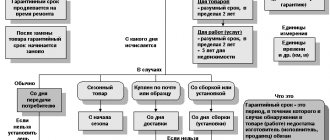Claim for protection of business reputation in court with our lawyer: professionally and on time. Protecting the business reputation of a legal entity or individual entrepreneur is a set of measures to restore the honor of an entity that was destroyed by slander and providing false information.
If you have been subjected to such attacks from competitors, clients, or the press, you can file a claim to protect your business reputation with representatives of the arbitration court.
When is it necessary to protect the business reputation of a legal entity or individual entrepreneur?
If you have been publicly slandered, you should not put up with this state of affairs. You can file a claim for protection of business reputation under the following circumstances:
- dissemination of false information by competitors through unfair and inappropriate advertising;
- publication of false reviews on the Internet;
- publication of defamatory and unreliable facts about the company’s activities in the press;
- other cases when judicial protection of an entrepreneur’s business reputation is required.
A lawsuit to protect the business reputation of a legal entity will be accepted and considered if you can prove the facts of falsification of libel. If you find false articles or analytical materials in the press, posts on social networks, negative reviews on specialized sites, be sure to save them. Make a print screen of the website, preferably with the date of publication. There is a high probability that the authors of this information that discredits you personally or your business will delete the information when they find out that they have been sued. If you have evidence of their guilt, it will be easier to win the case.
Protecting business reputation on the Internet is becoming a reality today. If previously it was almost impossible to prove the involvement of a certain person in the publication of false information in this way, today all this is easily monitored.
USEFUL: watch the VIDEO on protecting business reputation:
Information discrediting honor, dignity and business reputation
Read about jurisdiction in cases (2019) on the protection of honor, dignity and business reputation
Defamatory information is such information that may diminish the honor, dignity or business reputation of an individual or legal entity in public opinion or the opinion of individual citizens. Fabrications that discredit honor, dignity, or business reputation are subject to refutation, regardless of whether they are presented in a rude, offensive form or in a fairly decent manner. In the legal literature there are concepts of defamatory and disgraceful information; in some cases, it is difficult to determine the boundary between these concepts.
Both of them affect the reputation of the individual and the organization, but the degree of this influence is ambiguous. Any discrediting information will be discrediting, and vice versa.
The dissemination of information discrediting honor and dignity is understood as communicating it to an indefinitely wide circle of persons, several persons, or at least one person. This means publication of such information in the press, broadcast on radio and television, demonstration in other media, public speeches, statements or communication in other, including oral, form. The person reporting this information has virtually no opportunity to prevent its further dissemination. Even in such circumstances, when defamatory information has not become widely public, but is known at a certain stage only to one outsider, there are grounds to raise the question of their refutation (provided that they do not correspond to reality). In such cases, it is important to promptly stop unlawful actions so that fabrications do not spread further.
Providing information only to the person to whom it concerns does not constitute dissemination of information. In this case, the question of holding the perpetrator liable for insult or slander can be raised, if there are grounds for this. It is also not dissemination of information when an individual communicates defamatory information about himself to strangers, since he himself contributes to the formation of public opinion about his personality.
In the legal literature and in judicial practice there are cases of betrayed trust. Under certain circumstances, the person who has actually committed an unseemly act strictly confidentially informs another person about it with a request to keep the secret and hopes for this. However, the fact of a reprehensible act becomes known to others. Under such circumstances, the court will not satisfy the claim against the person who betrayed the trust, since the law does not provide for the refutation of information that corresponds to reality.
Information discrediting honor, dignity and business reputation may be disseminated in the media. This refers to a message in the form of a newspaper article, radio or television broadcast.
In this regard, Art. 152 of the Civil Code of the Russian Federation establishes a special procedure for refuting defamatory information that was disseminated in the media: a refutation must follow in the same media. The Law of the Russian Federation “On the Mass Media” also provides for the right to refute defamatory information affecting the honor, dignity of citizens and the business reputation of citizens and organizations; Article 43 of this law gives them the right to demand from the editors a refutation of untrue information that discredits their honor and dignity, which were distributed in this media. A citizen or organization can provide their text for refutation. On radio or television, you are given the opportunity to read out your text yourself.
In paragraph 3 of Art. 152 of the Civil Code of the Russian Federation provides for a situation when the media publishes information that in itself is not defamatory and corresponds to reality, but at the same time infringes on the rights and legitimate interests of a citizen and affects business reputation. In these cases, you can demand publication of the response (comment, remark) in the same media.
The Law “On the Mass Media” establishes a special procedure, according to which the requirement to publish a refutation or response in the media must first be notified to the editorial office, which is obliged to notify the citizen or legal entity in writing within one month about the expected date for publishing the refutation or about refusal to rebuttal. The refutation must be published in the same media, in the same font, in the same place on the page as the message being refuted. If a refutation is given on radio or television, it must be broadcast at the same time of day and, as a rule, in the same program as the message being rebutted.
In case of refusal to rebut, violation of the procedure for refutation, or expiration of the one-month period for giving a refutation, the relevant requirements may be appealed to the court within one year. In claims for the protection of business reputation and refutation of information published in the press, the defendant in the case is the editorial board of the relevant media outlet. If the editorial office of a mass media outlet is not a legal entity, the founder of the media outlet must be brought to participate in the case as a defendant. It should be borne in mind that Articles 45 and 46 of the Law of the Russian Federation “On the Mass Media” establish a one-year period during which a citizen or organization has the right to apply to the court to demand that the editorial office’s refusal to publish a refutation or response to the publication be declared unfounded. The beginning of the specified period is the day of dissemination of the disputed information.
In addition to the media, defamatory information may occur and be widely disseminated in documents: such a document must be replaced. If a person does not agree with the content of the production characteristic completely or only in certain parts of it, he may demand through the court a refutation of its entire content or the part with which he does not agree.
Clause 2 of Art. 150 of the Civil Code of the Russian Federation provides for the possibility of using any method named in Article 12 of the Civil Code of the Russian Federation, as well as other methods established by the Code and other laws, when protecting intangible benefits. Special methods of protection are established in Art. 152 of the Civil Code of the Russian Federation in cases of violation of honor, dignity and business reputation. The same article provides for the possibility of using general methods of protection (compensation for losses and compensation for moral damage).
In addition to special and general methods of protecting honor, dignity and business reputation, a citizen may demand the use of other methods not mentioned in Article 152. For example, confiscation of the circulation of a book in which defamatory information was published, prohibition of publication of the second edition, etc. These requirements fit into the general one contained in Art. 12th method of protection: suppression of actions that violate rights or create a threat of their violation.
Clause 6 of Art. 152 of the Civil Code of the Russian Federation provides citizens with the opportunity to defend honor, dignity, business reputation even in cases where neither the author nor the distributor of defamatory information can be identified (letter without a signature). This rule does not apply to cases when an anonymous letter is published in a newspaper, read on the radio, etc. In the above cases, the citizen retains the right to apply to the court to declare widespread defamatory information untrue. The court is limited to establishing the required fact without imposing on anyone the obligation to refute the disseminated information.
Several people sometimes participate in the spread of defamatory lies. There is an opinion that in the event of a legal dispute arising on the grounds of Art. 152 of the Civil Code of the Russian Federation they answer jointly. However, it is known that full performance of an obligation by a joint and several debtor releases the remaining persons from performance by the creditor.
At the same time, a refutation made by only one of those involved in the dissemination of incorrect information is not always able to satisfy the interests of the plaintiff. If other offenders avoid making similar statements, this may mean maintaining their previous position and indirectly tarnishing the citizen's reputation. In such cases, the obligation to refute the information mentioned should rest with all those who participated in its dissemination.
In relations with state bodies and officials, the problem of protecting the honor of a citizen becomes extremely acute in cases where it is associated with the tragedy of bringing an innocent citizen to criminal responsibility. The shame that covers the name of a person accused of a crime that he did not commit, especially one innocently convicted of a serious crime, not only reduces the social prestige of a citizen to zero, but also casts a shadow on his family and friends.
Unreasonably defamed honor, dignity or business reputation can be restored with the help of legal measures, which boil down to the refutation of untrue information.
In general, the subject of a violation of business reputation is those elements of the bearer of business reputation that are directly related to its business activities.
The Civil Code, the Law “On Competition and Restriction of Monopolistic Activities in Commodity Markets” define the essence of violation of business reputation as the dissemination of false, inaccurate or distorted information discrediting an economic entity that can cause it losses.
By analogy with how distribution, defamation and falsity are determined in the process of protecting honor and dignity, it is possible to establish, taking into account the emerging specifics, what distribution, defamation and falsity are in violation of business reputation. The specificity is manifested in the ability of the corresponding actions to cause losses, despite the fact that the Competition Law formally distinguishes between information “capable of causing losses” and information “capable of causing damage to business reputation”, it can be assumed that it is almost impossible for there to be damage to business reputation without such damage was not a cause of loss or a probable cause of loss. Without such a connection, protecting business reputation loses its commercial meaning. In the field of economics, information is only capable of causing losses when it has reached the attention of those persons on whose actions the successful activity of the economic entity in respect of which the information is disseminated depends.
A defective product (work, service), individualized by assigning it a trademark of an economic entity, whose business reputation may thus be disparaged, cannot be considered a carrier of defamatory information (information).
Business reputation can be protected in two ways. The first way: Article 152 Part 1 of the Civil Code of the Russian Federation. The second option of protection is provided by the Competition Law. Clause 1 Art. 3, paragraph 1, art. 2 of the law, among the main goals, objectives and functions of the Antimonopoly Committee, also include the suppression of unfair competition, including damage to business reputation. True, the entity entitled to protection under the Competition Law may be an economic entity included in the scope provided for in Art. 4 list. Based on this, those business entities that do not have the right to apply to the arbitration court to protect their interests do not have the right to appeal to the Antimonopoly Committee.
It is the ability to quickly attract or limit a violation of antimonopoly legislation, to administratively oblige the restoration of the original position by submitting a mandatory corresponding order to the violator, which makes the way of protecting business reputation through an appeal to the Antimonopoly Committee effective from a business point of view.
But an entity’s appeal for protection from unfair competition to the Committee, as an administrative body, does not exclude two other possibilities: a) parallel appeal: to the Antimonopoly Committee and to the arbitration court; b) applying to the arbitration court of the committee itself with a claim to prohibit unfair competition, restore the original position, and recover damages in favor of the victim. Moreover, it cannot be said that in the latter case the Antimonopoly Committee will always act as a procedural plaintiff, i.e. in defense of the business entity.
When filing a claim to protect business reputation, the plaintiff must provide evidence that the dispute is related to his business or other economic activities.
Decisions made by the court are not always implemented. Here the legislator provided for the imposition of a fine for the violator, collected in the prescribed procedural manner to the income of the Russian Federation. But the paid fine does not relieve the violator from the obligation to fulfill the obligation stipulated by the court decision.
In some cases, information is disseminated about a person, although it corresponds to reality, but contains a negative characteristic of him (previous criminal record, being in a psychiatric hospital, etc.). It is possible that the disclosure and dissemination of this kind of facts creates discomfort for the person and can cause him certain emotional disturbances and experiences. Russian legislation does not provide for sanctions for the dissemination of this type of information. The specialized literature expresses different points of view on this matter.
Some experts believe that the institution of defamation is incompatible with our legislation. Others, on the contrary, consider this situation to be incorrect, because information may be made public that does not affect the public assessment of a person, but causes mental suffering and sometimes mental shock to a person.
There must be a differentiated approach here, since the appearance of information about circumstances discrediting a citizen is caused by various reasons. In particular, information about the subject’s unworthy actions may be dictated by social needs and educational considerations.
Making public the unseemly actions of a citizen that go beyond the personal sphere and affect the interests of any groups or society as a whole is acceptable and justified. Of course, the same immoral actions should not be punished endlessly.
Responsibility for the dissemination of defamatory information that does not correspond to reality occurs regardless of the form in which this information was disseminated - oral, written, in the media, etc.
It should be noted that this liability also arises in the case where defamatory information that does not correspond to reality was disseminated by a person in the performance of official duties.
In the case of dissemination of such information orally, responsibility is usually assigned to the official himself, and in the case of dissemination of information in written form, responsibility is usually assigned to the institution, enterprise or organization on behalf of which the official acted. In cases where such an institution, enterprise or organization does not enjoy the rights of a legal entity, its superior body bears responsibility.
How to draw up a statement of claim for the protection of business reputation?
The claim does not have to contain only a claim for the protection of business reputation.
For example, if the dissemination of information is carried out by your counterparty and is accompanied by a simultaneous failure to fulfill contractual obligations, then you have the right to simultaneously collect receivables in court. It is worth noting that, at the request of the plaintiff, with the consent of the defendant in such a situation, simplified proceedings in the Arbitration Procedure Code of the Russian Federation can be applied. This will allow you to significantly reduce legal costs.
The statement of claim contains the following information:
- name of the court;
- information about the plaintiff;
- information about the defendant;
- the name of the printed publication or other object where the false information was published;
- the essence of the complaint;
- evidence of false information;
- refutation demands;
- claims for recovery of material and moral damage;
- date, signature.
First, you need to correctly file a claim to protect the business reputation of an individual entrepreneur or an entire company. Our experienced lawyers will help you.
USEFUL : watch the video and learn more tips on filing a claim in court
In defense of a lawyer's reputation
It is no secret that a significant part of the representatives of the legal community come to the legal profession after some period of work in commercial structures or in the public service.
In such a “past” period, reputation, as a rule, is not subject to “attacks”, and if it is, for a number of reasons it does not receive a full rebuff. However, during the practice of law, especially in public and high-profile cases, a lawyer often becomes the object of attacks from people who have encountered him in a negative context in past incarnations.
The non-public nature of the activities prior to obtaining lawyer status or the editorial policy of the media are restraining factors for free comments about the professional work of a lawyer. However, during his legal career, some people may decide that it is now permissible to loudly declare about the pre-lawyer life of this person, grievances against him, and nothing terrible will happen - the main thing is that everyone knows who this lawyer was before and stays away from him further away.
In practice, I was faced with the following situation: a journalist covering a “high-profile” criminal trial, commenting on the tactics and strategy of defending the defendant (my client), followed the lead of a reader who was a witness in this case (and had previously been convicted when I was an employee law enforcement agencies), and in an attempt to criticize the defense lawyer’s line, he switched to the lawyer’s personality and assessment of his work in his previous place.
I will describe the step-by-step actions that ultimately made it possible to obtain a positive court decision on a claim for the protection of honor, dignity and business reputation. I hope my experience will be useful to colleagues who find themselves in a similar situation or who represent the interests of clients in similar claims.
First step
– having familiarized yourself with the publication, it is necessary to isolate phrases in it that are not a value judgment, but contain information discrediting honor, dignity and business reputation (for example, in the statement of claim I indicated as such: “odious person”, “things that happened under him terrible things”, “he was asked by the authorities, so he became a lawyer”).
Second step
consisted of an attempt to contact the journalist by e-mail, the address of which was indicated on the media website, with a demand to publish a refutation, since the information provided to his interviewee was not true. The letter also contained a recommendation to preserve evidence (a voice-recording of an interview, correspondence, etc.), since in the event of a trial, the journalist would need to refer to the original source, and if the interviewee denies that she is the author of the controversial statements, responsibility will be placed on the journalist and the editorial office .
The journalist ignored the letter (looking ahead, I note that when it came to the possibility of pre-trial settlement of the conflict, the journalist explained the lack of response by the inoperability of the electronic mailbox). Subsequently, when considering my claim for the protection of honor, dignity and business reputation, the court attached a printout of the email to the case materials, and the matter was closed.
At the next court hearing in the criminal case against my client, in which the journalist and his interlocutor also took part, I was able to record on video that the source of untrue information, including unflattering statements addressed to the defense lawyer, was the interviewee, and from her own words she doesn't refuse. As a result, the publication published another material, which not only duplicated unreliable information from the previous interview, but also described in detail the process of identifying the authorship of controversial statements via video recording in court.
Thus, at the third stage, it was necessary to inspect two written evidence with the drawing up of a protocol by a notary.
After receiving the inspection report from the notary, I sent a statement of claim to the court for the protection of honor, dignity and business reputation. To establish territorial jurisdiction, it was necessary to select one of the defendants’ addresses: the place of permanent registration of the journalist’s interlocutor or the legal address of the editorial office.
The trial on the merits, in the absence of obvious delay on the part of the defendants, took three months and included five hearings.
I will dwell in more detail on the process of presenting evidence and refuting the arguments of procedural opponents.
The defendants appeared at all meetings, actively objected to the claims, presented evidence, and called witnesses to substantiate their claims. Due to the psychological aspects of the relationship between the parties, who had experienced personal hostility towards each other for a long time, it was easier and tactically correct for me, as a plaintiff, to resort to the help of a representative. This, firstly, neutralized the defendant’s negative reaction to questions from the plaintiff; secondly, it allowed the process to be conducted without excessive emotional overtones, and thirdly, the lawyer, as a representative, sent legal requests to Rospechat and Roskomnadzor, collected and presented evidence to the court.
The main evidence was the conclusion of a linguist who conducted a full-fledged scientific study of the text of both publications.
The expert confirmed, in particular, that the statement “terrible things happened in his presence” contains a generalizing construction that in modern Russian discourse refers to frightening, horrifying and unacceptable events. In conclusion, it was noted that statements of this kind discredit the plaintiff in public opinion, indicate that he has committed dishonest and illegal acts in the past, which casts doubt on his overall professional and human qualities at the present time.
The specialist also analyzed a fragment of the statement “he was asked by the authorities, so he became a lawyer.” This phrase, according to the linguist, contains a negative characteristic of the plaintiff, indicating that his departure from law enforcement agencies was forced (the verb “asked” in Russian is used to denote the opposite meaning - “they didn’t ask politely, but kicked out, expelled”; has place is a mandatory component of the meaning of forced or forced resignation from a position). Thus, as stated in the opinion, this statement contains information in the form of an allegation that the plaintiff was dismissed from the authorities.
As a result, the specialist came to the conclusion that the studied fragments of the text contain a sharply negative image of the plaintiff’s personality, form a negative attitude of the reader towards him, and also trigger a process called in linguistics “denigration of the individual,” which suggests the existence of a series of publications aimed at discrediting the individual the plaintiff and undermining his business reputation. In addition, a series of conflicting publications are an extremely powerful means of discrediting: they not only create a reduced image of the subject of censure, but also thoroughly consolidate it in media discourse. Thus, as summarized in the specialist’s conclusion, the negative characteristic of the subject, transmitted from text to text, turns into one of his most stable and difficult to refute characteristics.
In my opinion, the specialist’s conclusions regarding the phrase “odious personality” seem interesting. The word “odious” in itself is not something discrediting - an assessment is always subjective, it is the result of the mental activity of the person expressing it, who, having perceived information about the properties, qualities, behavior of the assessed object or person, correlated it with culturally and historically conditioned subjective idea of the norm and chose certain lexical means based on what deviations from the norm were identified. Thus, a personality assessed as odious by one person may be interpreted differently by others – in particular, positively. In this regard, during the meeting, I clarified the claims in relation to this statement.
In addition to adding the specialist’s conclusion to the case materials, the court decided to summon and interrogate the specialist at the court hearing. The interviewed specialist confirmed his conclusions. His testimony was also used as the basis for the court decision to satisfy the claims. During the trial, the parties asked questions to the specialist and received answers to them. Having checked the case materials, the court came to the conclusion that the specialist’s conclusion and his testimony answered the questions posed and correlated with the case materials.
The court was also presented with written evidence of the plaintiff's service in law enforcement agencies and the circumstances of his dismissal (on his own initiative in connection with retirement due to length of service), documents on the absence of disciplinary punishments, incentives, etc.
In cases of this category, I consider it necessary to give examples of negative consequences for the plaintiff as a justification for moral damage
, but due to the specific nature of lawyering and the obligation to maintain attorney-client privilege, it is unacceptable to use relationships with clients that have changed for the worse as arguments. For this reason, in the statement of claim, as a negative consequence of the controversial publications, I indicated the creation of a negative image of me as a teacher in the student and teaching environment of the university, which led, among other things, to material losses in the form of a reduction in the teaching load. These circumstances were confirmed during questioning by a witness who explained to the court that he works at a higher educational institution where the plaintiff teaches, and these publications influenced the plaintiff’s teaching activities. The court had no reason not to trust the witness.
The refutation of the defendants’ arguments, which actually amounted to a negative characterization of the methods of the lawyer defending the client in court, fell on the shoulders of the judge and was expressed in the final decision in a single paragraph: “The defendant and his witnesses characterized the plaintiff’s activities in protecting his client negatively. However, he represented the interests of his client by virtue of his activities as a lawyer and had to carry out his duties. If, in the opinion of witnesses, the plaintiff violated legal ethics in a criminal case in which the plaintiff and witnesses took part, this issue is considered in a different court procedure.”
.
Summing up this process (albeit private, but at the same time classic in cases of this category), I would like to add that the red thread that ran through all the hearings was the judge’s repeated question to the defendants: “What evidence of your allegations, other than personal hostility towards the plaintiff, can you bring it?
As a result, the court decided to satisfy the claims, collect compensation for moral damages and legal costs from the defendants, and oblige the media to publish a refutation. The defendants did not appeal the decision and entered into force.
In conclusion, I note that critical publications, if they are written in the correct form and do not contain offensive words and expressions, are not subject to challenge in court. At the same time, the statement of a fact discrediting the reputation without the presentation of evidence will always be recognized by the court as untrue - with all the ensuing consequences.
Determining the amount of damage caused to business reputation
It is worth noting that damage to business reputation is an intangible benefit. Thus, the amount of harm caused is determined independently by the person whose right is violated.
However, the court has the right to reduce the stated requirements if the person whose right is violated cannot prove the proportionality of the harm caused and the amount claimed. In this case, a lawyer will help you in the arbitration process.
Compensation for actual losses caused by the dissemination of false information
Often, the dissemination of false information can lead to real losses, in the form of termination of contracts with counterparties. Such failed deals can cause serious damage to a business. In this case, a well-drafted claim to the arbitration court for damages will help. To recover damages, you will have to prove:
- fact of dissemination of false information;
- a cause-and-effect relationship between losses and the dissemination of information.
If the first, in the presence of the above evidence, is confirmed quite simply, then when proving a cause-and-effect relationship, it is often simply impossible to do without the help of a qualified specialist, such as our lawyer in the arbitration process.
Sample claim for protection of business reputation of an individual
To Ordzhonikidze District Court
PLAINTIFF:
E.
RESPONDENT:
ABOUT
Statement of claim
on the protection of honor, dignity, business reputation, compensation for moral damage
I am the head of the personnel department of LLC “...”, my responsibilities include, among other things, personnel selection. On September 28, 2012, together with the director, we conducted an interview at the address: Yekaterinburg, st. Pervomayskaya, where the Defendant took part.
On September 29, 2012, the defendant was approved for the position of records secretary. I invited the defendant to hand over the cases, and on the same day the defendant was explained the internal regulations and job responsibilities. I sent instructions to the defendant in writing (attached to the claim). The orders were urgent and required immediate execution due to the possibility of losses, in particular the ordering of railway tickets. The defendant did not properly fulfill her labor duties, which led to losses in connection with the order of train tickets.
On October 3, 2012, during a meeting with the defendant in the presence of two HR managers. I provided explanations regarding incorrect actions related to untimely execution of orders and regarding losses incurred. The conversation took place in a business style, without raising the voice or insulting the individual. The defendant interrupted the conversation by deciding to quit and leaving the office. The defendant no longer went to work.
Subsequently, I received an email from the defendant and followed the link to the information that was posted on the ekb website and also sent to the email address of F. LLC. in Tyumen. In the information posted, I was offended by the fact that the defendant called me “a poor woman who probably hasn’t had a man for a long time or I started menopause at the age of 30.” I regard the information posted by the defendant as untrue and defamatory of honor, dignity and business reputation.
In accordance with Article 23 of the Constitution of the Russian Federation, everyone has the right to defend their honor and good name. Article 29 of the Constitution of the Russian Federation guarantees freedom of thought and speech to everyone, as well as freedom of the media.
Business reputation is one of the conditions for successful activity. Taking into account these constitutional provisions, a balance must be ensured between the right of citizens to protect honor, dignity, and business reputation, on the one hand, and other rights and freedoms guaranteed by the Constitution of the Russian Federation - freedom of thought, speech, mass information, the right to freely seek, receive , transmit, produce and disseminate information in any legal way, the right to privacy, personal and family secrets, the right to appeal to state bodies and local governments (Articles 23, 29, 33 of the Constitution of the Russian Federation), on the other.
USEFUL: watch the video and find out why it is better to draw up any sample claim or complaint with our lawyer, write a question in the comments of the video, subscribe to the YouTube channel
In accordance with paragraphs 1 and 7 of Article 152 of the Civil Code of the Russian Federation, if information discrediting my business reputation is disseminated, I have the right to demand a refutation in court.
In accordance with Part 1 and Part 5 of Art. 152 of the Civil Code of the Russian Federation, a citizen has the right to demand in court a refutation of information discrediting his honor, dignity or business reputation, unless the person who disseminated such information proves that it is true. A citizen in respect of whom information discrediting his honor, dignity or business reputation has been disseminated, has the right, along with a refutation of such information, to demand compensation for losses and moral damage caused by its dissemination.
According to Part 2 of Art. 1101 of the Civil Code of the Russian Federation “the amount of compensation for moral damage is determined by the court depending on the nature of the physical and moral suffering caused to the victim, as well as the degree of guilt of the harm-doer in cases where guilt is the basis for compensation for harm. When determining the amount of compensation for damage, the requirements of reasonableness and fairness must be taken into account.”
I estimate the moral amount of moral damage in my case to be 55,000 rubles.
Based on the above and guided by Art. 151, part 2 art. 1101 of the Civil Code of the Russian Federation, as well as Part 1 of Art. 98 of the Code of Civil Procedure of the Russian Federation, Resolution of the Plenum of the Supreme Court of the Russian Federation dated February 24, 2005 N 3 “On JUDICIAL PRACTICE IN CASES ON THE PROTECTION OF THE HONOR AND DIGNITY OF CITIZENS, AS WELL AS THE BUSINESS REPUTATION OF CITIZENS AND LEGAL ENTITIES”
ASK:
- Oblige the defendant to publish a refutation on the same Internet site ekb
- To recover from the defendant in my favor monetary compensation for moral damage caused in the amount of 55,000 (fifty-five thousand) rubles.
- To recover from the defendant in my favor the paid state duty, as well as the costs of payment for drawing up the statement of claim in the amount of 2,000 rubles.
Date, signature
The Supreme Court of the Russian Federation analyzed the practice under Art. 152 Civil Code of the Russian Federation
March 29, 2021 6:16 pm
The Supreme Court of the Russian Federation has studied judicial practice in disputes regarding the protection of honor, dignity and business reputation over the past five years
On March 29, the Supreme Court of the Russian Federation published a “Review of the practice of courts considering cases on disputes regarding the protection of honor, dignity and business reputation” for the period from 2010 to 2015. As reported in the review, judicial statistics indicate a stable number of such cases considered annually: in On average, 5,000 cases are considered per year in courts of general jurisdiction and 800 cases in arbitration courts.
“The analysis of judicial practice materials in general indicates the existing uniformity in the consideration of cases of this category,” the document notes. However, at the same time, the RF Armed Forces emphasized that the mistakes made by the courts and the questions they arise confirm the need to pay attention to a number of points.
1. If the parties to a dispute about the protection of business reputation are a legal entity or individual entrepreneur in an area not related to business and other economic activities, such a dispute falls within the competence of courts of general jurisdiction.
2. The competence of arbitration courts includes the consideration of cases on the protection of business reputation in the field of entrepreneurial and other economic activities, regardless of the subject composition of the participants in disputed relations.
3. The fact of dissemination of untrue, defamatory information can be confirmed by any evidence that meets the requirements of relevance and admissibility.
4. The absence of at least one circumstance from the mandatory set of conditions for satisfying the claim is grounds for refusal to satisfy the stated requirements.
5. When deciding whether the information disputed by the plaintiff is defamatory in nature, as well as to assess their perception, taking into account the fact that the disseminated information can be brought to the attention of third parties in various ways, the courts, if necessary, should appoint an expert examination or engage for consultation specialist
6. When considering cases of protection of honor, dignity and business reputation, it is necessary to take into account that the value judgments, opinions, and convictions contained in the disputed statements of the defendants are not the subject of judicial protection under Art. 152 of the Civil Code of the Russian Federation, unless they are offensive in nature.
7. The person who disseminated certain information is released from liability if he proves that such information is generally true. In this case, it is not necessary to prove the validity of each individual word or phrase in the disputed statement. The defendant is obliged to prove the validity of the disputed statements, taking into account the literal meaning of the words in the text of the message. The determination of which statements are key is made by the court when assessing the information as a whole.
8. Criticism of the activities of persons performing public functions is permissible within wider limits than in relation to private individuals.
9. The plaintiff’s demands for protection of honor and dignity are not subject to satisfaction if he disputes the information set out in the defendant’s official appeal to a government agency or official, and the appeal itself does not contain offensive language and is conditioned by the defendant’s intention to exercise his constitutional right to appeal to government officials. bodies and local governments.
10. A media outlet is not responsible for the dissemination of information that is untrue and discredits business reputation if it reproduced verbatim a message published by another media outlet and unless it is proven that it knew or should have known that the disseminated information was untrue .
11. In the event that it is impossible to identify the person who disseminated defamatory information, an application to recognize such information as untrue is considered in a special proceeding.
12. Damage to the business reputation of an organization can be caused by the dissemination of defamatory information - both about the organization itself and in relation to persons included in its management bodies, as well as employees of this organization.
13. In the event of reorganization of a legal entity, the legal successor or founder of the legal entity has the right to file a claim to protect its business reputation.
14. Dissemination of false information about the trademark under which the plaintiff’s products are manufactured detracts from the plaintiff’s business reputation, even if the plaintiff himself is not named in the publication.
15. The dissemination of false information about the introduction of bankruptcy proceedings in relation to a legal entity or the presence of significant debts damages its business reputation.
16. If defamatory information posted on a website on the Internet is found by a court to be untrue, the owner of the site or another person authorized by him who posts information on this site is obliged to remove such information at the request of the victim.
17. Information contained in procedural documents, for appeal of which another legal procedure established by law is provided for, cannot be considered as untrue.
18. The award of monetary compensation for moral damage in cases of protection of honor, dignity and business reputation must meet the goal for which this method of protecting the non-property rights of citizens has been established. The amount of compensation for moral damage must meet the requirements of reasonableness, fairness and be proportionate to the consequences of the violation.
19. A claim for compensation for damages cannot be refused solely on the grounds that the exact amount cannot be determined. The amount of damages to be compensated in this case is determined by the court, taking into account all the circumstances of the case, based on the principles of fairness, proportionality and in order to eliminate the consequences of the violation.
20. Bringing a person to administrative responsibility for insult (Article 5.61 of the Code of Administrative Offenses of the Russian Federation) is not a basis for releasing him from the obligation to provide monetary compensation for moral damage caused to the victim in accordance with Art. 151 Civil Code of the Russian Federation.
SharePrint Direct link to the material:
Share








